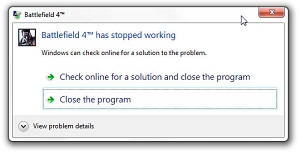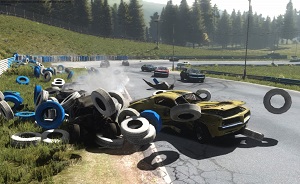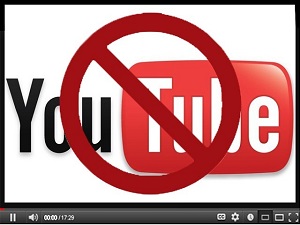It just wouldn’t be January if I didn’t postulate like a mad thing and try and guess some of the events and trends coming over the next year. Will I be sitting here smugly in December, enjoying the warm glow of correctness? Or will I be hiding from sophisticated company, tortured by a year of publicly proven gobshitery? Only time will tell!
1) More Big Games Will Ship Unfinished, Some Will Go Back To the Drawing Board
With the controversies over Aliens: Colonial Marines and Total War: Rome 2 still fresh in the memory and the craziness surrounding Battlefield 4 enduring despite whatever patches, server work and voodoo rituals DICE can throw at it, 2013 proved that not only are more and more games releasing in a decidedly less-than-finished state, it’s getting to the stage where it’s basically expected.
 Should it be? Absolutely not… In theory. That, however, doesn’t stop the feeling that these crises have become an inevitability under the current climate. But while the accusations of laziness and/or greed levied at developers such as DICE and Creative Assembly are understandable, and while both developers and publishers share various degrees of the blame for their games’ shambolic debuts, one can’t help but feel that all this screaming and stamping of feet ultimately just draws focus from a far more pervasive issue to do with how games have traditionally been made, and what modern games now need to be made. Games are, on the whole, more complex and stuffed with production value than they’ve ever been, and are rapidly approaching commercial filmmaking in terms of ludicrous expense. Yet at the same time, they’re made under schedules and processes established by a publisher/developer system that doesn’t seem to have changed all that much since at least the tail-end of the 1990s. Read Dave Cook’s excellent two-parter about the ‘crunch’ climate in game production on VG 24/7, and tell me that it doesn’t sound like an industry broken on a fundamental level.
Should it be? Absolutely not… In theory. That, however, doesn’t stop the feeling that these crises have become an inevitability under the current climate. But while the accusations of laziness and/or greed levied at developers such as DICE and Creative Assembly are understandable, and while both developers and publishers share various degrees of the blame for their games’ shambolic debuts, one can’t help but feel that all this screaming and stamping of feet ultimately just draws focus from a far more pervasive issue to do with how games have traditionally been made, and what modern games now need to be made. Games are, on the whole, more complex and stuffed with production value than they’ve ever been, and are rapidly approaching commercial filmmaking in terms of ludicrous expense. Yet at the same time, they’re made under schedules and processes established by a publisher/developer system that doesn’t seem to have changed all that much since at least the tail-end of the 1990s. Read Dave Cook’s excellent two-parter about the ‘crunch’ climate in game production on VG 24/7, and tell me that it doesn’t sound like an industry broken on a fundamental level.
 The whole thing feels like a massive wake-up call waiting to happen hard enough for publishers to finally get the message. Whether it means taking longer to make the games, or an overhaul of the processes that go into into their making, it seems increasingly evident that something needs to change, and evident in ways that the industry at large can’t ignore much longer . What I’m willing to bet, however, is that the problem will get worse before it starts getting better.
The whole thing feels like a massive wake-up call waiting to happen hard enough for publishers to finally get the message. Whether it means taking longer to make the games, or an overhaul of the processes that go into into their making, it seems increasingly evident that something needs to change, and evident in ways that the industry at large can’t ignore much longer . What I’m willing to bet, however, is that the problem will get worse before it starts getting better.
2) Early Access Will Find Its Way
It’s only fairly recently that I finally got comfortable with the whole Early Access thing. For the longest time I thought the same as a lot of people: “Buying games before they’re finished? What bullshit are they pulling now?”. Coming on the heels of a string of failed videogame Kickstarters it felt like a desperation move, a gimmick to generate hype and money for games that simply may not have been good enough to earn these things through traditional channels.
 I eventually realized that I was dead wrong with this line of thinking. Sure, there’s your fair share of uninspired, unpromising games suckling from the Early Access teat – just look at the multitude of identikit Minecrafty survival games with zombies clogging up the Steam catalogue – but by and large, quality still turns heads. Some recent Early Access projects, such as Assetto Corsa and Bugbear’s Next Car Game, provide hugely enjoyable and technically impressive experiences even with many features still pending. Then there are games that are in a less polished state but more than make up for it by being conceptually interesting, such as the 70s sci-fi inspired interstellar colonization sim Maia or the recently out of Early Access Lovecraftian roguelike Eldritch.
I eventually realized that I was dead wrong with this line of thinking. Sure, there’s your fair share of uninspired, unpromising games suckling from the Early Access teat – just look at the multitude of identikit Minecrafty survival games with zombies clogging up the Steam catalogue – but by and large, quality still turns heads. Some recent Early Access projects, such as Assetto Corsa and Bugbear’s Next Car Game, provide hugely enjoyable and technically impressive experiences even with many features still pending. Then there are games that are in a less polished state but more than make up for it by being conceptually interesting, such as the 70s sci-fi inspired interstellar colonization sim Maia or the recently out of Early Access Lovecraftian roguelike Eldritch.
These games display a talent and sense of originality that at times put the big publishers to shame, and at least they tell you that their game is unfinished (See Point #1). With the big guns making their games increasingly bloated and expensive and charging people full-price for incomplete work, suddenly paying half of that for better, more original games doesn’t seem too bad a deal.
3) VR Will Make For A Great Niche Market… But Not Much Else
Having tried the prototype HD Oculus Rift at PAX Australia last year, there are two things I can say with complete confidence: One, that it’s a stunningly impressive piece of tech that left me raring for more, and two, that I have no idea how much ‘more’ would actually be. Ultimately, I can see VR getting a lot of attention and being adored by the few who actually buy the gear, but the mainstream will not jump in as quickly.
 VR may promise great moments of gaming, there are still too many questions of basic usability left unanswered, like how UI will be handled, or the simple issue of being able to look at your chosen control input (Especially when it comes to your more hardcore sims that use most of the keyboard). And how comfortable will extended use be? We all love the sense of immersion in games, but this is an almost full sensory disconnect from the outside world. Your head’s in a digital bucket – a really spectacular digital bucket for sure, but still a digital bucket. These are all questions that can be handwaved when you have a meticulously crafted two-minute demo that doesn’t actually involve playing anything, but the Rift, along with Sony’s much-mooted VR system, needs to prove itself as something that provides as good a use experience as it does a technological one.
VR may promise great moments of gaming, there are still too many questions of basic usability left unanswered, like how UI will be handled, or the simple issue of being able to look at your chosen control input (Especially when it comes to your more hardcore sims that use most of the keyboard). And how comfortable will extended use be? We all love the sense of immersion in games, but this is an almost full sensory disconnect from the outside world. Your head’s in a digital bucket – a really spectacular digital bucket for sure, but still a digital bucket. These are all questions that can be handwaved when you have a meticulously crafted two-minute demo that doesn’t actually involve playing anything, but the Rift, along with Sony’s much-mooted VR system, needs to prove itself as something that provides as good a use experience as it does a technological one.
The other issue at play is that the mainstream never, ever moves as quickly as the tech companies would like, and the general public already have their hands full with new consoles. It’s risking a similar situation to what’s been happening in the consumer TV field, with the public only just getting their heads round digital and HD television and being less than keen on the idea of buying new gear when 3D was pushed (One suspects that the current push towards 4K will play out similarly). Of course, the amount of tech-savvy gamers is arguably higher than the number of similarly literate TV enthusiasts, but the biggest wedge of the market still belongs to the casual/semi-casual contingent. These are the people who don’t keep up with tech news, who maybe only buy two or three games a year as long as they’re called Madden, FIFA or Call of Duty. Some of these people are still gaming on analog TVs, and will need to upgrade if they want to buy a next-gen machine. These are people whose support turns a successful niche product into the kind of bona-fide mainstream hit that Oculus and Sony would like for their respective devices.
 Long story short, it’s unlikely to happen. Aside from the fact that too little is known about these devices (Especially Sony’s, which is still at the ‘open secret’ stage of the rumour mill) the timing simply isn’t right for the mainstream to take to VR. At the very least, the tech needs some kind of retail track record for gamers as a whole to jump onto the promised revolution. The Rift will be popular on PC; the future past that depends on how popular.
Long story short, it’s unlikely to happen. Aside from the fact that too little is known about these devices (Especially Sony’s, which is still at the ‘open secret’ stage of the rumour mill) the timing simply isn’t right for the mainstream to take to VR. At the very least, the tech needs some kind of retail track record for gamers as a whole to jump onto the promised revolution. The Rift will be popular on PC; the future past that depends on how popular.
4) The Streaming Video Phenomenon Will Survive, Hopefully With Its Soul Intact
It seems as if the days of gamer commentary and Let’s Plays on YouTube is coming to an end, thanks to the copyright enforcement changes Youtube have recently made to their autoflag system. With many channel owners reliant on the income generated by views, there has been much speculation as to whether the days of user-generated video content are numbered.
 One need only look at the success and growing influence of figures such as TotalBiscuit, NerdCubed and Boogie2988 to know that this is hardly the case. These are guys who are knowledgeable, entertaining and above all are relatable to gamers in a way that games journalists used to be back in the 80s and 90s, and the video format offers much more information about prospective game purchases than can be gleaned from text alone. YouTubers will find a home no matter what: what remains to be seen is whether Google will do the smart thing and keep them.
One need only look at the success and growing influence of figures such as TotalBiscuit, NerdCubed and Boogie2988 to know that this is hardly the case. These are guys who are knowledgeable, entertaining and above all are relatable to gamers in a way that games journalists used to be back in the 80s and 90s, and the video format offers much more information about prospective game purchases than can be gleaned from text alone. YouTubers will find a home no matter what: what remains to be seen is whether Google will do the smart thing and keep them.
Of course, even if the venue/income issue is settled this year may still be a defining period for the YouTube revolution. Recent reports that Microsoft has been offering YouTube personalities payment for positive Xbox One coverage serves as a reminder that getting the attention of the big boys carries with it great opportunity, but also great risk. The lure of the moneyhat has always been an issue in the mainstream games media, but when we’re talking about a group of people who are mostly inexperienced and still struggling to handle production and licensing costs it starts to look like increasingly fertile ground for payola-esque arrangements to thrive upon.
 In fact, I predict that in the next twelve months at least one or two high-profile YouTube celebrities will be caught with their hands in a corporate cookie jar, if not in relation to the Microsoft claims then belonging to another company with deep pockets and a big marketing team. Considering that these celebrities’ reputation is based on their perceived independence, this will raise questions as to how these commentators should be perceived. Much like punk rock, what started out as grassroots and under-the-radar cannot stay that way once it’s drawn the gaze of the zeitgeist, and it’s the business of business to find a way into whatever their customer base deems important. What will remain to be seen is where fan-centered streaming video will be in a year, in body and soul.
In fact, I predict that in the next twelve months at least one or two high-profile YouTube celebrities will be caught with their hands in a corporate cookie jar, if not in relation to the Microsoft claims then belonging to another company with deep pockets and a big marketing team. Considering that these celebrities’ reputation is based on their perceived independence, this will raise questions as to how these commentators should be perceived. Much like punk rock, what started out as grassroots and under-the-radar cannot stay that way once it’s drawn the gaze of the zeitgeist, and it’s the business of business to find a way into whatever their customer base deems important. What will remain to be seen is where fan-centered streaming video will be in a year, in body and soul.
5) The Long Wake-Up Call Will Keep On
Whichever angle from which you look, it seems that change – or at least, the incremental approach of it – will be the overriding theme in gaming this year. From the creative substance of games to the ways they’re sold, there’s a growing sense that the industry as we know it is working off models that have reached their sell-by date. With a gaming public that’s getting older and a market that wants diversity and affordability in equal measure, the big publishers in particular are in danger of clinging to production methods they can no longer sustain, and people are starting to notice the identikit, IP-milking product that is the result of such stagnation. Games like The Witness, which can argued as the indie generation stepping up to the ‘big leagues’, will give us a hint as to how well the big publishers will take to the next generation of talent (And vice-versa).
These changes will be slow. There will be resistance, not just from the business end but to a fair degree we as gamers will have to do a bit of maturing ourselves. We need to stop indulging in internet tantrums that obscure the real issues at hand (Again, see Point #1), and when someone like Anita Sarkeesian points out where our chosen medium is being a bit backwards, we need to stop trying to find the nitpicks like it’s some kind of competition, let go of our parochial gamer defensiveness and actually listen to the points being made. We want games to be seen as mature entertainment? Well, that takes work. That takes actual thinking as opposed to everything being a territory-marking kneejerk. The average age of gamers getting higher means the sum total of ‘fuck’ and ‘all’ if we’re just going to keep behaving like teenagers.
Maybe someone rich like Bono can donate puberty to NeoGaf’s membership or something. That’d be a nice start.
